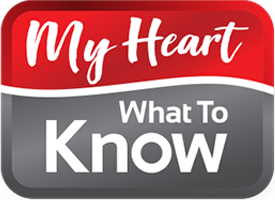Heart attacks and strokes remain leading causes of death worldwide. Knowing your risk level can enable you to take important preventive steps and make informed choices.
Key Risk Factors for Cardiovascular Events
- High Blood Pressure: Chronic high blood pressure damages the heart and arteries, increasing the likelihood of a heart attack or stroke.
- High Cholesterol Levels: Elevated levels of cholesterol, particularly the LDL (“bad”) cholesterol can lead to plaque buildup in arteries, restricting blood flow and potentially leading to clots resulting in complete blockages and events (heart attack or stroke).
- Smoking: Tobacco use damages blood vessels, raises blood pressure, and accelerates the build-up of arterial plaque, significantly increasing cardiovascular risk. Smoking increases the risk of heart attack and strokes by two to four times.
- Diabetes: High blood sugar damages blood vessels and heart muscle over time, making people with diabetes more susceptible to heart disease.
- Obesity: Excess body weight, especially around the heart and abdomen, can lead to high blood pressure, high cholesterol, and increased insulin resistance and inflammation, all of which are linked to higher risk of heart disease.
- Physical Inactivity: A sedentary lifestyle contributes to obesity, high blood pressure, and high blood sugar and cholesterol levels, each of which raises cardiovascular risk.
- Unhealthy Diet: Diets high in saturated fats, processed foods, and sugars can contribute to obesity, high cholesterol, diabetes and high blood pressure.
- Family History: Genetics play a role in heart health. A family history of heart disease can mean a higher risk for similar issues.
- Age and Gender: Risk increases with age, and men generally have a higher risk earlier in life. However, after menopause, women’s risk becomes comparable to men’s.
- Chronic Stress: Persistent stress can increase blood pressure and may contribute to behaviors that increase risk, such as overeating or smoking.
Preventing Cardiovascular Events
Adopting heart-healthy habits is essential for everyone, especially those at higher risk. This includes regular exercise, maintaining a healthy weight, a balanced healthy diet low in processed foods and sugar, avoiding tobacco, managing stress, and having regular check-ups to monitor blood pressure, cholesterol, and blood sugar levels. Taking these steps can significantly reduce the chances of a heart attack or other cardiovascular events.
Remember: Talk to a healthcare provider about your specific risk factors and what can be done to manage them. Small changes now can lead to a healthier heart in the long term.
—
An important step towards better health for many people is reaching a healthier weight, which can reduce the risk of cardiovascular disease. To find a physician near you who specializes in weight management, click here.
—
All the information provided on this site is for educational purposes only and is not a substitute for professional medical advice, diagnosis, or treatment. My Heart – What To Know is not a healthcare provider or clinic. ALWAYS consult with a qualified healthcare provider regarding any questions you may have about a medical condition. Never disregard professional medical advice or delay in seeking it because of something you have read on this website. If you think you may have a medical emergency, call 911 or go to the nearest emergency room immediately. No physician-patient relationship is created by this website or its use.
This article was sponsored by Novo Nordisk Canada. All content is created independently by My Heart – What To Know with no influence from Novo Nordisk.

